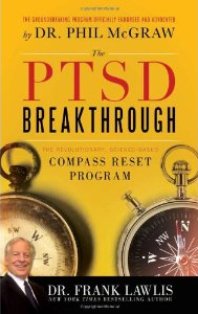October 2nd, 2010 by RyanDuBosar in Better Health Network, News, Research
No Comments »

British scientists announced that attention-deficit/hyperactivity disorder (ADHD) has been linked to deleted or duplicated DNA segments (copy number variants), which leads to developmental difference in the brains of children with the condition.
Researchers scanned genomes of 366 children with ADHD and compared them with 1,047 unrelated, ethnically matched control subjects. They reported full results in The Lancet.
Rare copy number variants were almost twice as common in children with ADHD compared to the other children. Researchers commented to Reuters that there was a significant overlap between copy number variants found in ADHD and elements of the genome linked to autism and schizophrenia, specifically in a region on chromosome 16.

*This blog post was originally published at ACP Internist*
September 24th, 2010 by Dinah Miller, M.D. in Better Health Network, News, Opinion, Research
No Comments »


 In psychiatry, we’ve had a hard time drawing precise links between brain pathology and psychiatric disorders. We can do it for groups of people: “Disease X” is associated with changes in brain structure of “Brain Area Y” or metabolic changes in “Brain Area Z.” But it’s groups, not individuals, and it’s an association, not a cause-and-effect, or a definite. We still can’t use this information for diagnosis, and there are still patients with any given psychiatric diagnoses who will have brains where “Area Y” is the same size as those without the disorder. We’re learning.
In psychiatry, we’ve had a hard time drawing precise links between brain pathology and psychiatric disorders. We can do it for groups of people: “Disease X” is associated with changes in brain structure of “Brain Area Y” or metabolic changes in “Brain Area Z.” But it’s groups, not individuals, and it’s an association, not a cause-and-effect, or a definite. We still can’t use this information for diagnosis, and there are still patients with any given psychiatric diagnoses who will have brains where “Area Y” is the same size as those without the disorder. We’re learning.
From what I read in this New York Times article, Owen Thomas was a bright, talented young man with no history of psychiatric disorder and no history of known concussion. In April, he committed suicide — a tragedy beyond words.
Sometime people commit suicide and everyone is left to wonder: There was no depression, no obvious precipitant, no note left behind, and every one is left to wonder why. The guilt toll on the survivors is enormous, as is the grief for their families and communities. In this case, according to the Philadelphia Inquirer, the young man was apparently struggling with the stress of difficult school work and concerns about his team and employment.
Owen’s family donated his brain to Boston University’s Center for the Study of Traumatic Encephalopathy. They discovered that Owen’s brain showed damage similar to that seen in older NFL players — he had a condition called chronic traumatic encephalopathy. Read more »
*This blog post was originally published at Shrink Rap*
September 23rd, 2010 by Harriet Hall, M.D. in Better Health Network, Book Reviews, Opinion, Quackery Exposed, Research
3 Comments »

 It infuriates me when someone misappropriates the word “science” to promote treatments that are not actually based on science. I have just read a book entitled The PTSD Breakthrough: The Revolutionary Science-Based Compass RESET Program by Dr. Frank Lawlis, a psychologist who is the chief content advisor for Dr Phil and The Doctors. There is very little science in the book and references are not provided. It amounts to an indiscriminate catalog of everything Dr. Lawlis can imagine that might help post-traumatic stress disorder (PTSD) patients.
It infuriates me when someone misappropriates the word “science” to promote treatments that are not actually based on science. I have just read a book entitled The PTSD Breakthrough: The Revolutionary Science-Based Compass RESET Program by Dr. Frank Lawlis, a psychologist who is the chief content advisor for Dr Phil and The Doctors. There is very little science in the book and references are not provided. It amounts to an indiscriminate catalog of everything Dr. Lawlis can imagine that might help post-traumatic stress disorder (PTSD) patients.
He describes recent brain imaging studies suggesting that signs of traumatic brain injury are associated with PTSD. He thinks PTSD can no longer be considered a psychological condition, but must be approached as a complex biological, physical, psychological, and spiritual condition. He says many of these patients have brain damage. Read more »
*This blog post was originally published at Science-Based Medicine*
September 21st, 2010 by GarySchwitzer in Better Health Network, News, Opinion, Research
No Comments »

I have a lot of catching up to do after being in Europe for just 4 days. But I can’t let this one go by without comment. In fact, this issue was one of the first ones raised by German journalists I met with in Dortmund this week. Don’t think people around the world don’t notice the good AND the bad in American health/medical/science journalism — especially by The New York Times.
The Times took a long time (five weeks) to comment on what critics — including me, Paul Raeburn, Charlie Petit and many other journalists (including Times’ ombudsman Arthur Brisbane) — wrote about Gina Kolata’s August 10 piece on a “100% accurate” Alzheimer’s test. But [on September 16th] the paper published a correction. Read more »
*This blog post was originally published at Gary Schwitzer's HealthNewsReview Blog*
September 2nd, 2010 by Michael Sevilla, M.D. in Better Health Network, Health Policy, Health Tips, News, Research
1 Comment »

 A study published earlier this week by the American Academy of Pediatrics states that “the number of sport-related concussions is highest in high school-aged athletes, but the number in younger athletes is significant and on the rise.” Why is this? Many believe this is from better recognition of the symptoms and the need to be medically evaluated.
A study published earlier this week by the American Academy of Pediatrics states that “the number of sport-related concussions is highest in high school-aged athletes, but the number in younger athletes is significant and on the rise.” Why is this? Many believe this is from better recognition of the symptoms and the need to be medically evaluated.
I did a couple of interviews with local TV news to talk about the subject (Video 1 and Video 2). In my research on this subject, I found an article from the Dayton Daily News stating that the Ohio High School Athletic Association (OHSAA) passed a policy in May 2010:
Any athlete who exhibits signs, symptoms or behaviors consistent with a concussion (such as loss of consciousness, headache, dizziness, confusion or balance problems) shall be immediately removed from the contest and shall not return to play until cleared with written authorization by an appropriate health care professional.
In addition, on the OHSAA website there’s an entire section devoted to concussions and head injuries. I have also read that other states have taken similar steps, especially with high school and younger athletes.
If you find the videos in this post helpful, I encourage you to see my other interviews on health-related topics at MikeSevilla.TV
*This blog post was originally published at Doctor Anonymous*





 In psychiatry, we’ve had a hard time drawing precise links between brain pathology and psychiatric disorders. We can do it for groups of people: “Disease X” is associated with changes in brain structure of “Brain Area Y” or metabolic changes in “Brain Area Z.” But it’s groups, not individuals, and it’s an association, not a cause-and-effect, or a definite. We still can’t use this information for diagnosis, and there are still patients with any given psychiatric diagnoses who will have brains where “Area Y” is the same size as those without the disorder. We’re learning.
In psychiatry, we’ve had a hard time drawing precise links between brain pathology and psychiatric disorders. We can do it for groups of people: “Disease X” is associated with changes in brain structure of “Brain Area Y” or metabolic changes in “Brain Area Z.” But it’s groups, not individuals, and it’s an association, not a cause-and-effect, or a definite. We still can’t use this information for diagnosis, and there are still patients with any given psychiatric diagnoses who will have brains where “Area Y” is the same size as those without the disorder. We’re learning.
 It infuriates me when someone misappropriates the word “science” to promote treatments that are not actually based on science. I have just read a book entitled
It infuriates me when someone misappropriates the word “science” to promote treatments that are not actually based on science. I have just read a book entitled 

 A study published earlier this week by the
A study published earlier this week by the 







